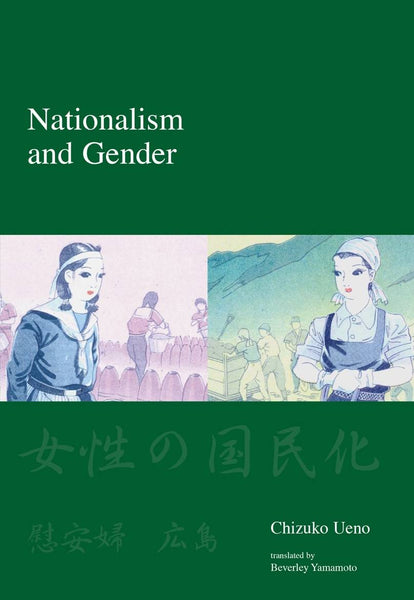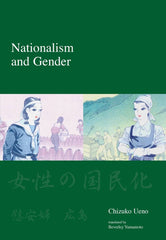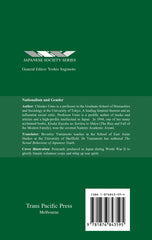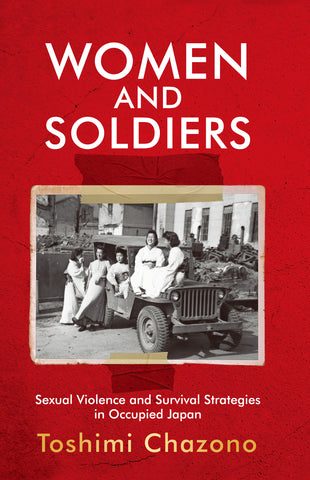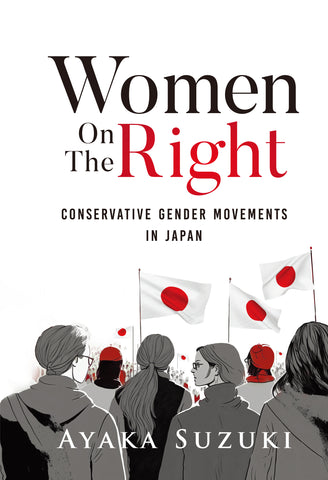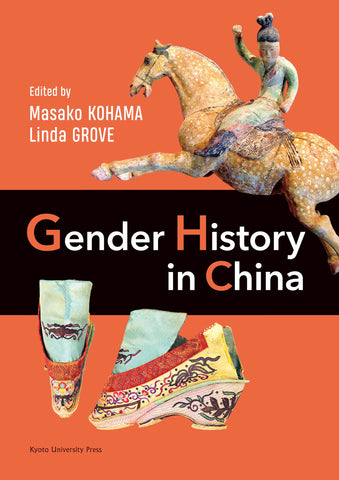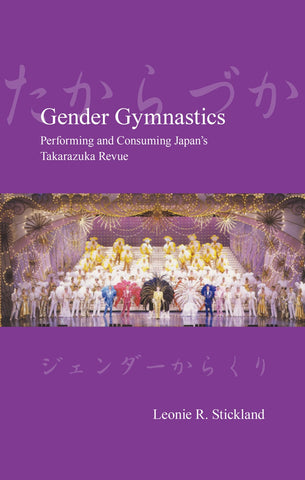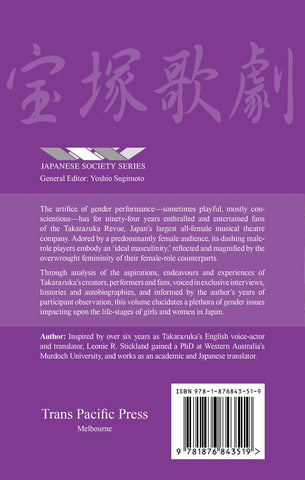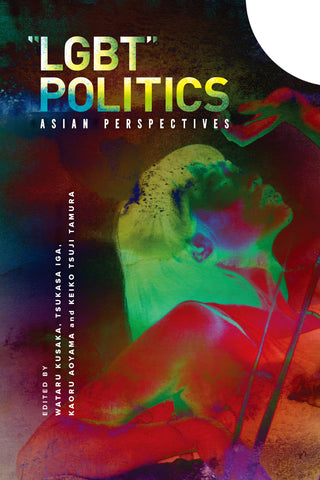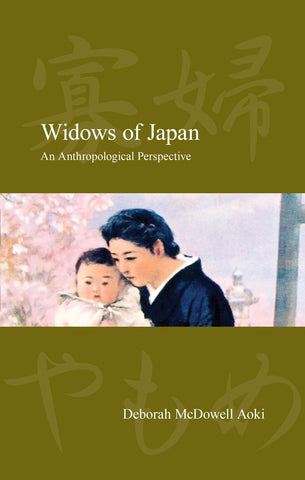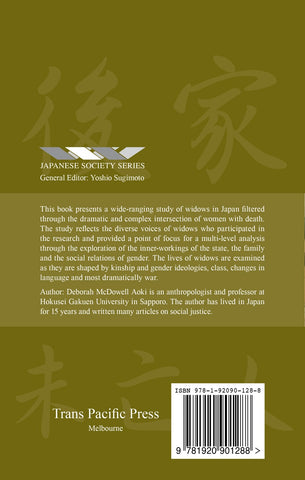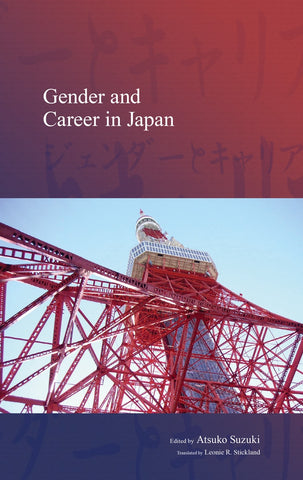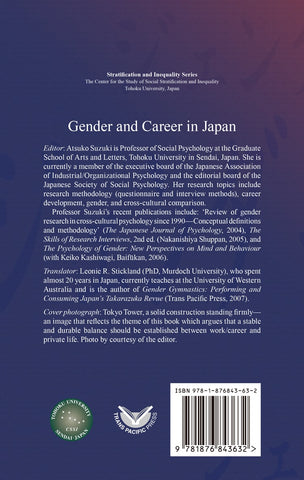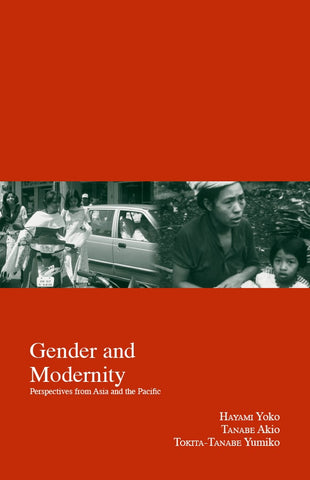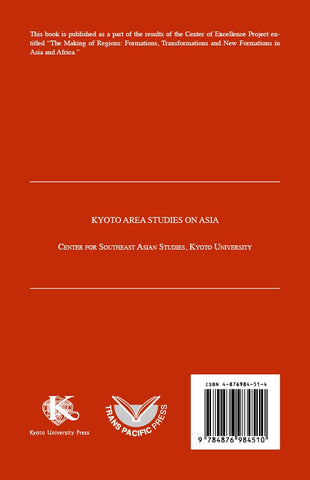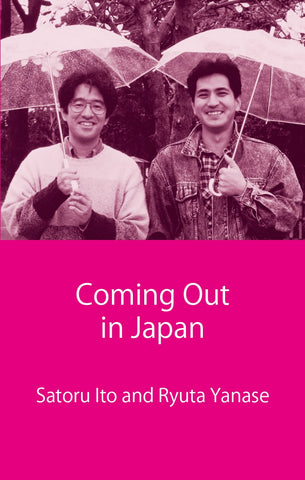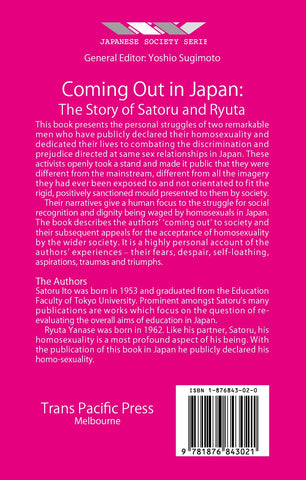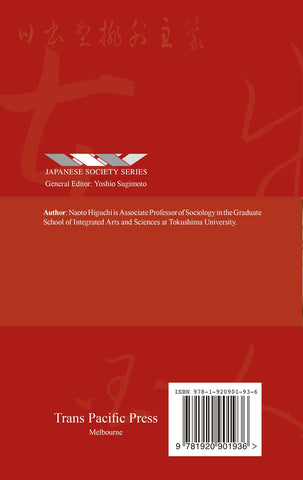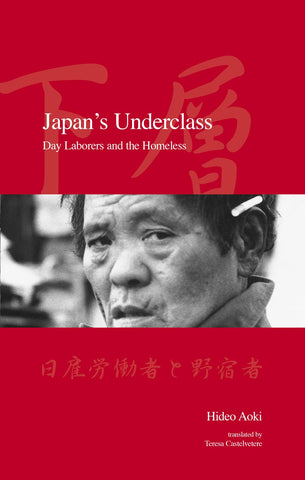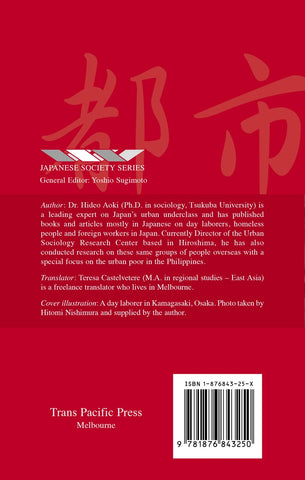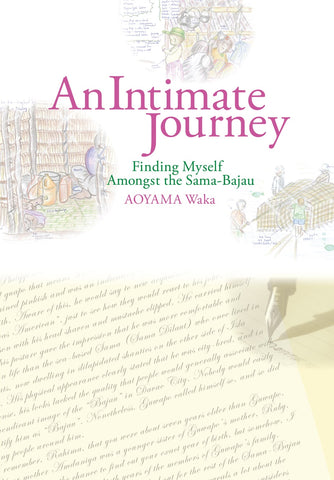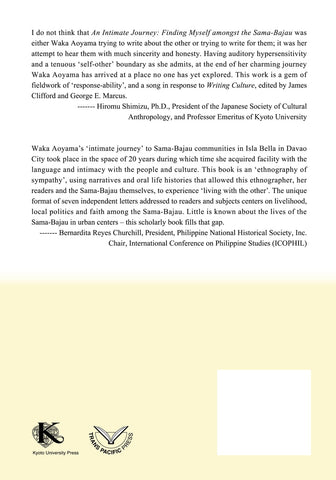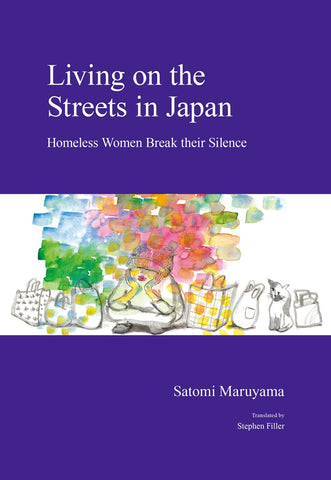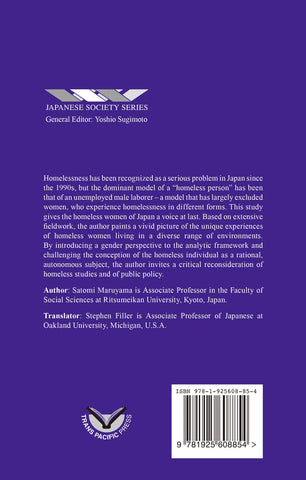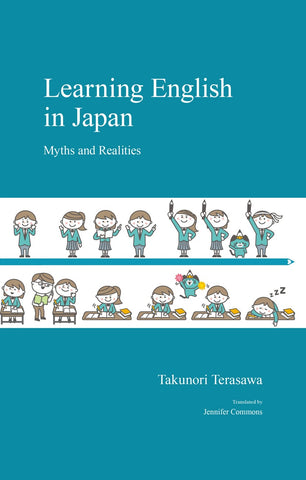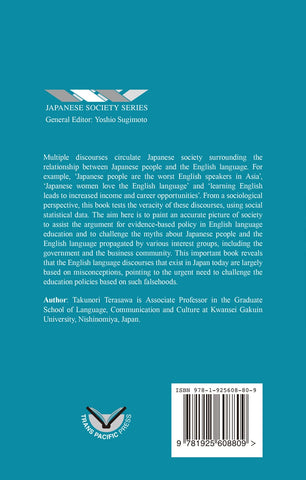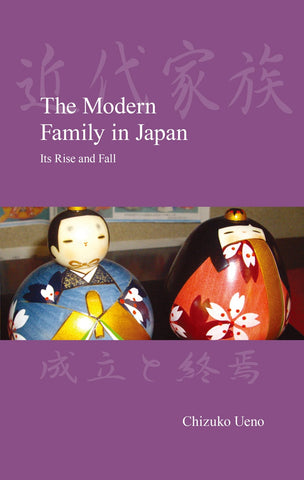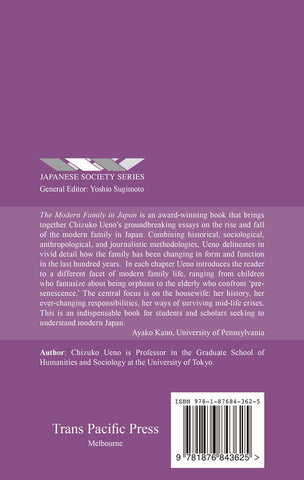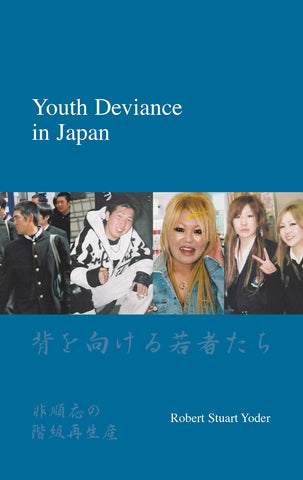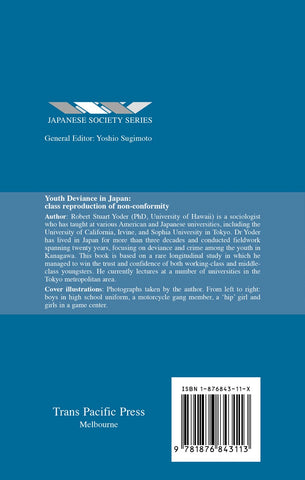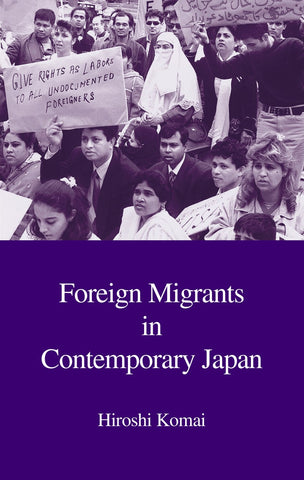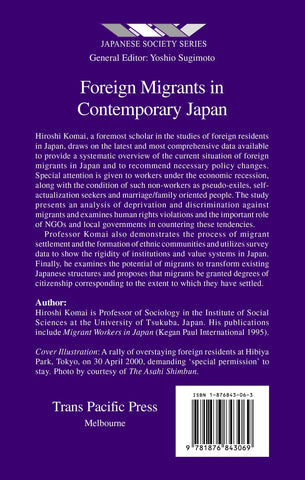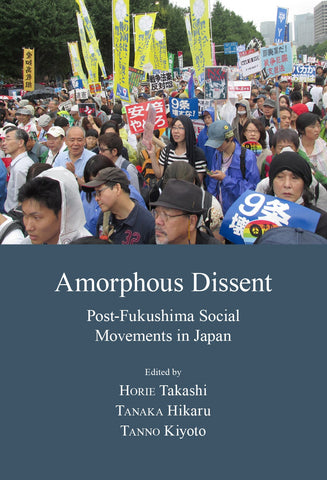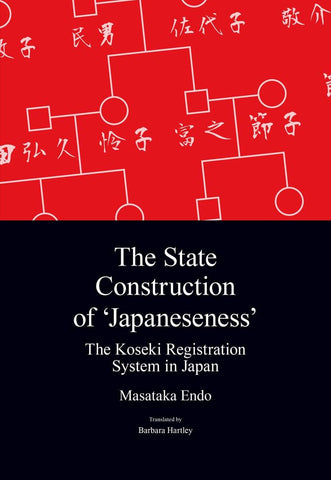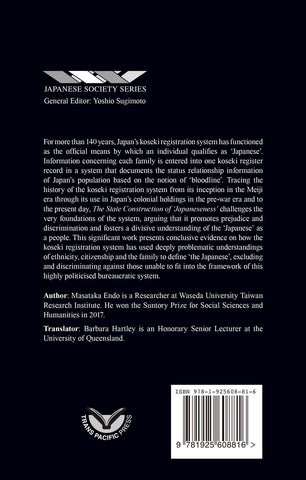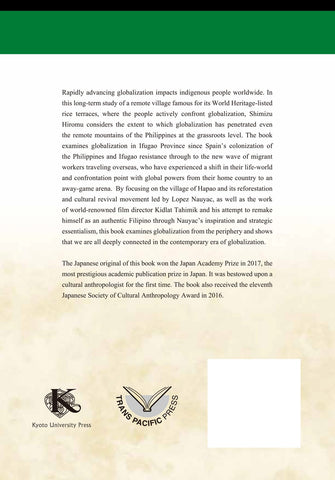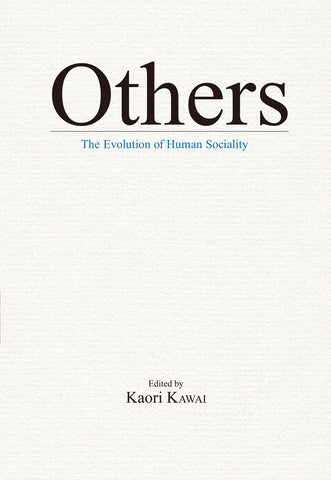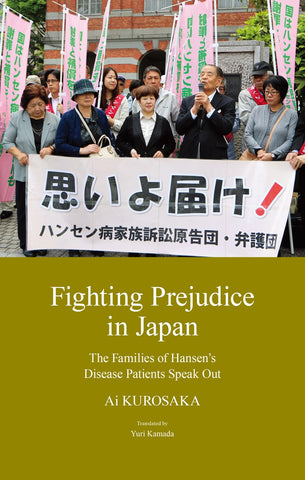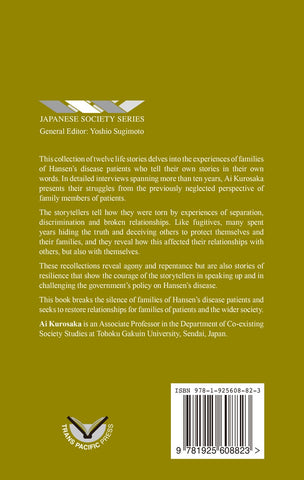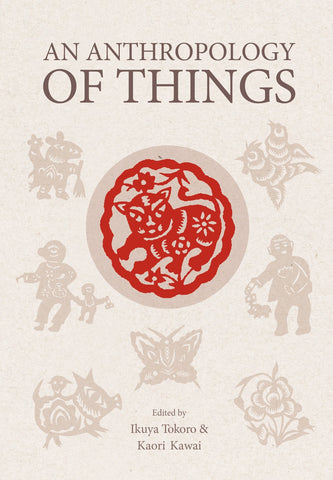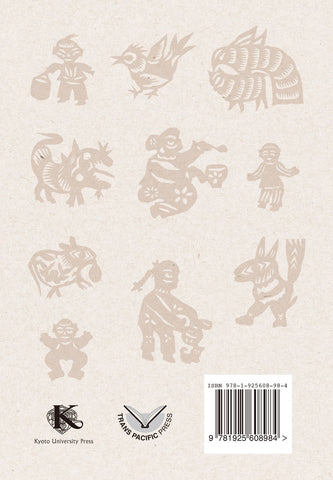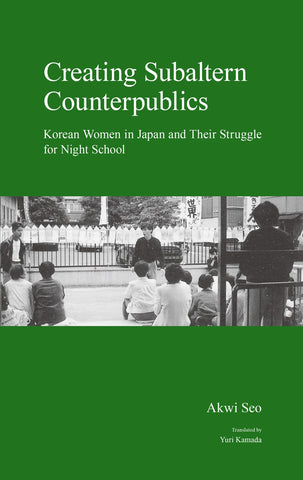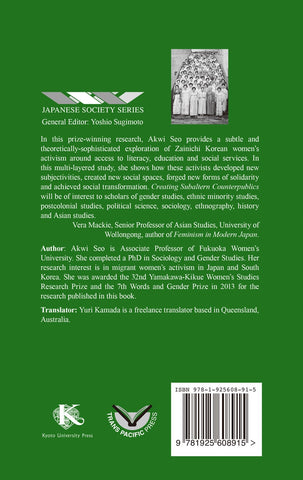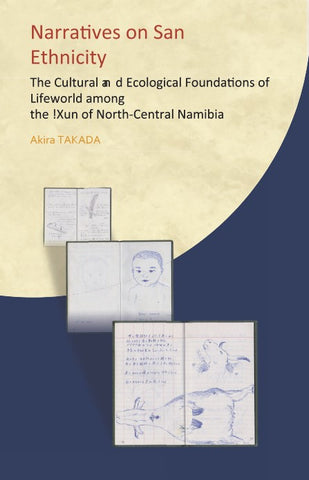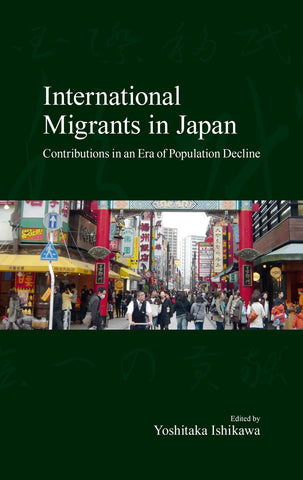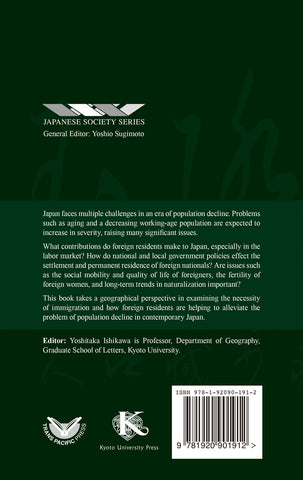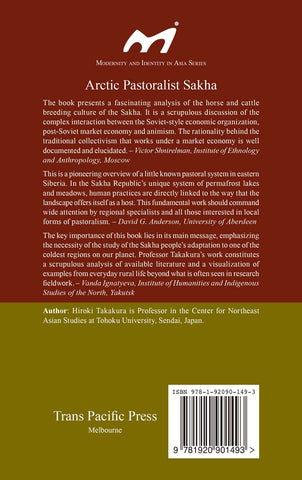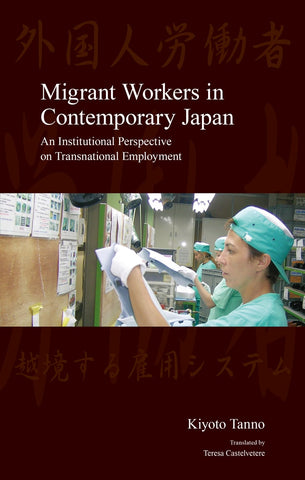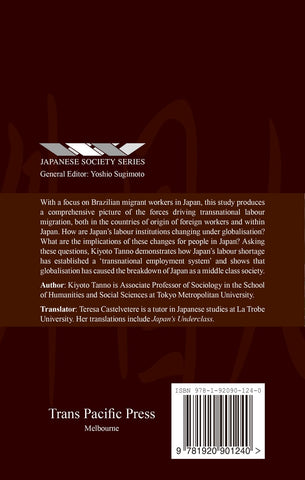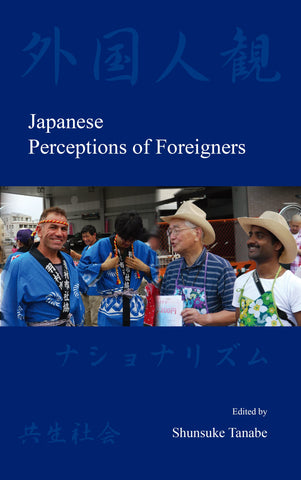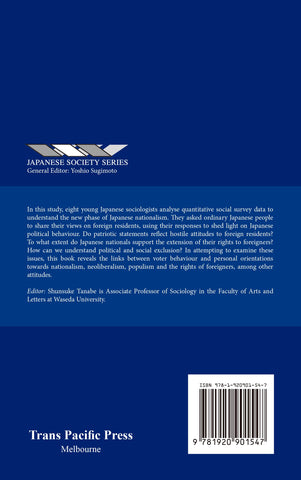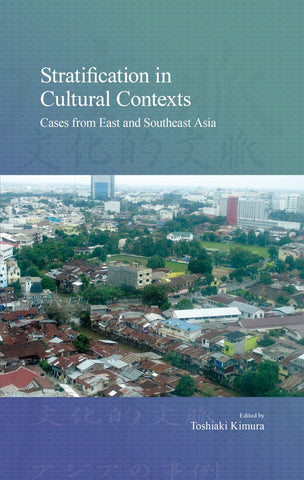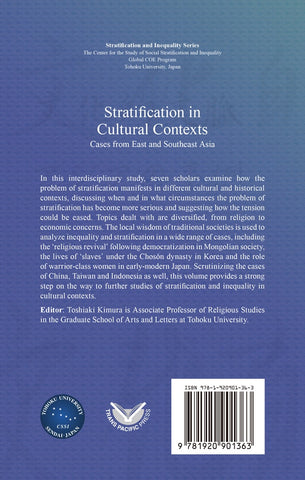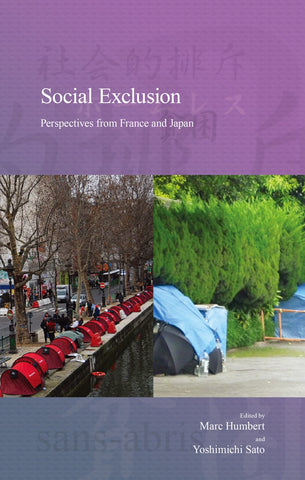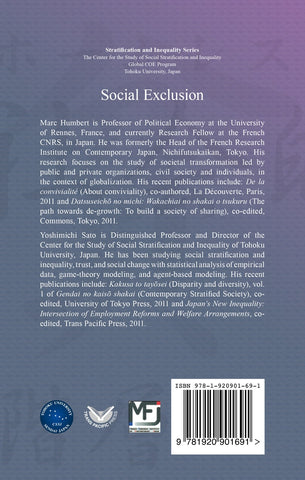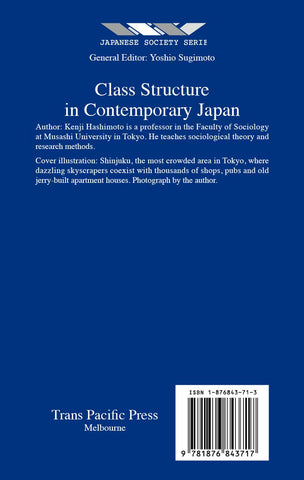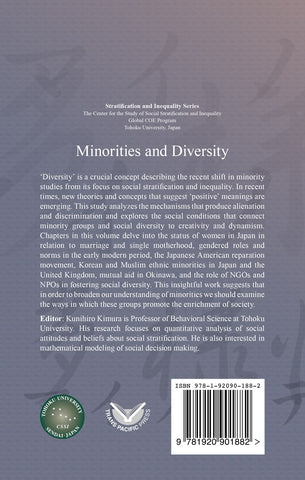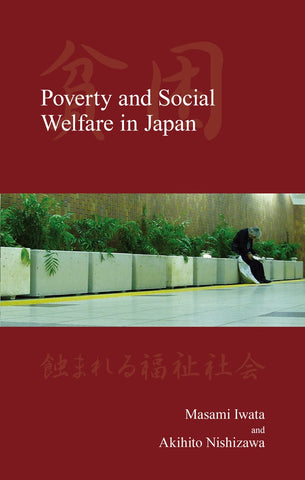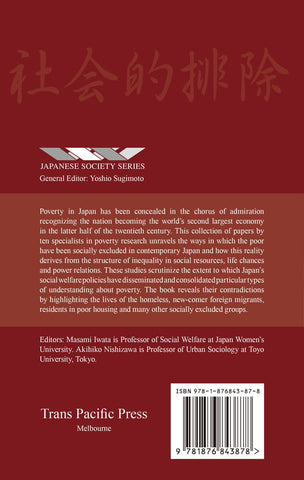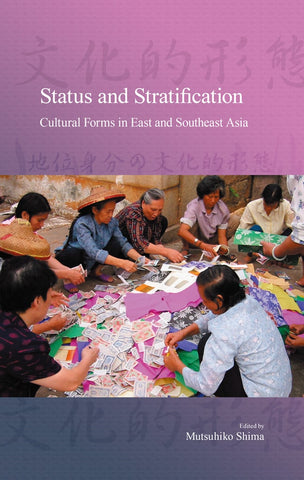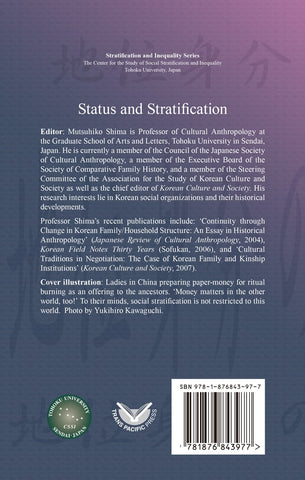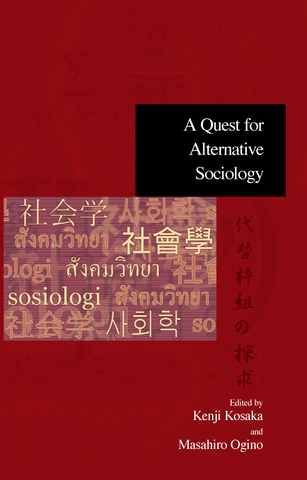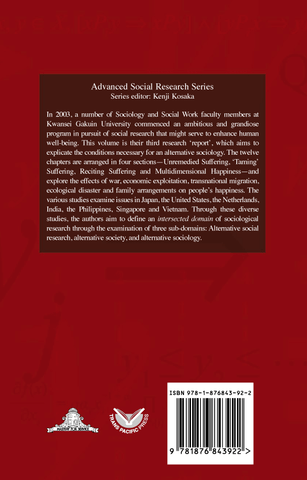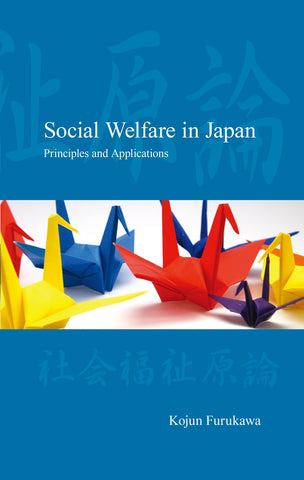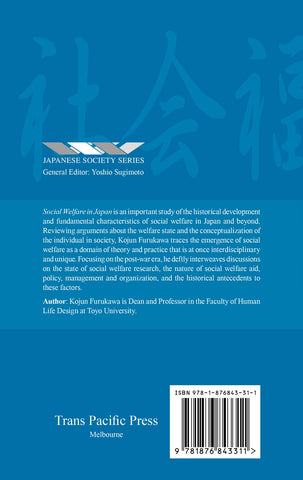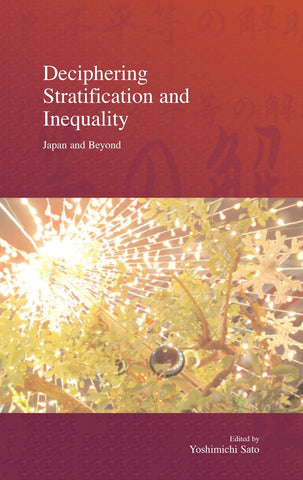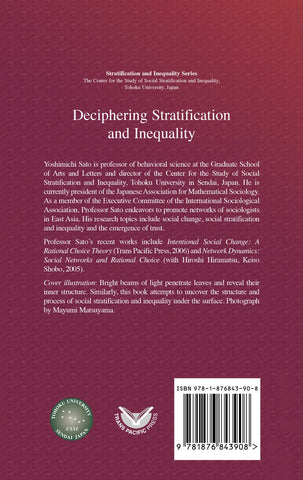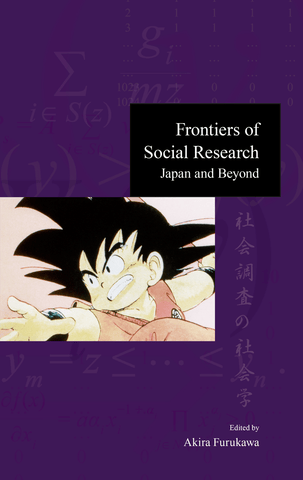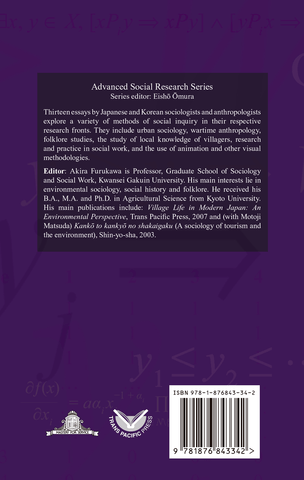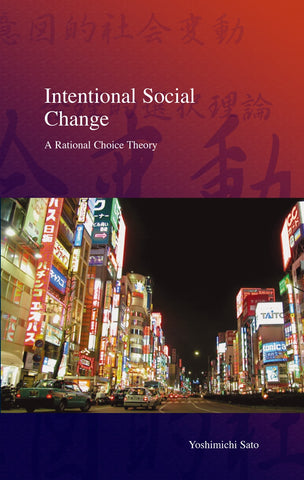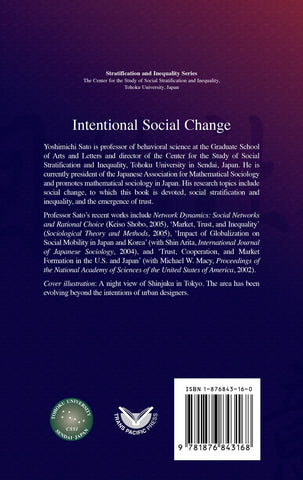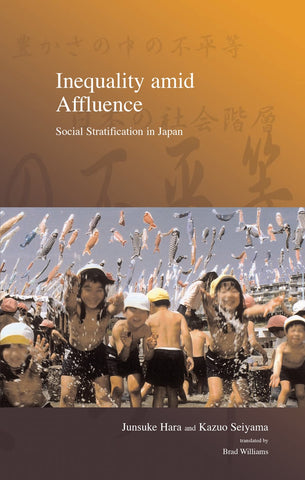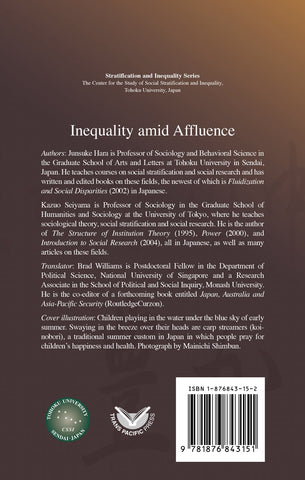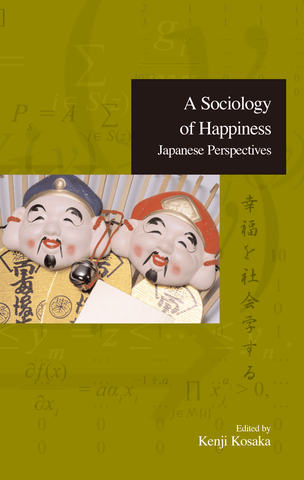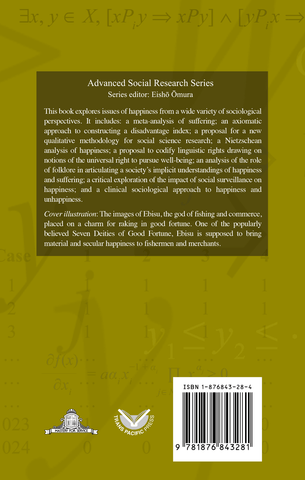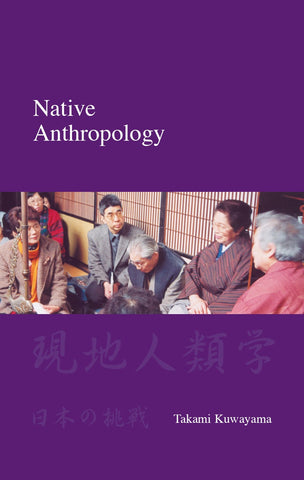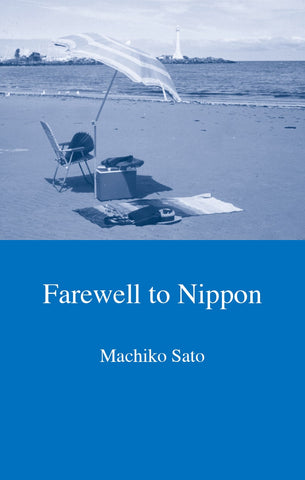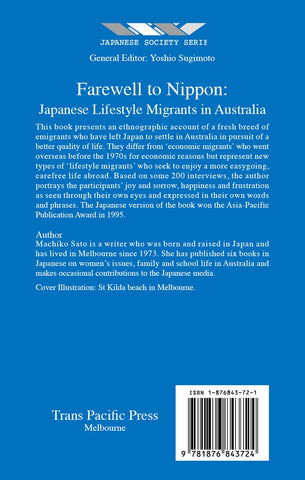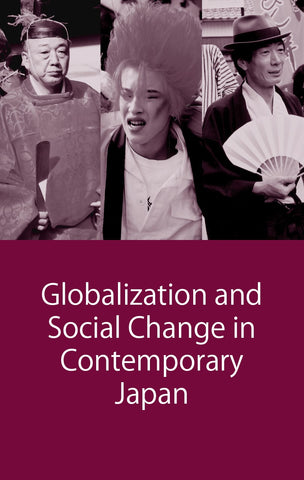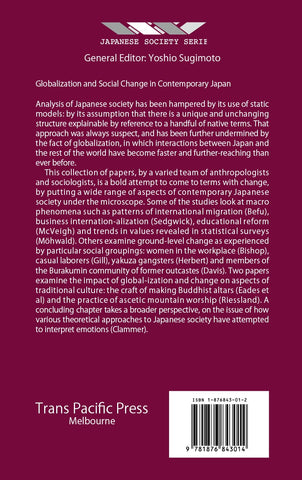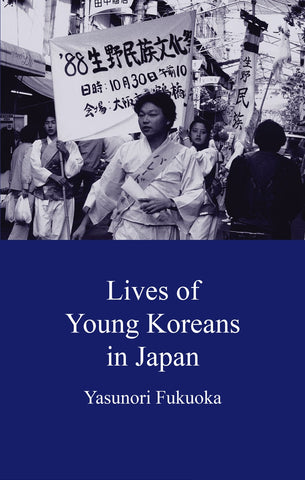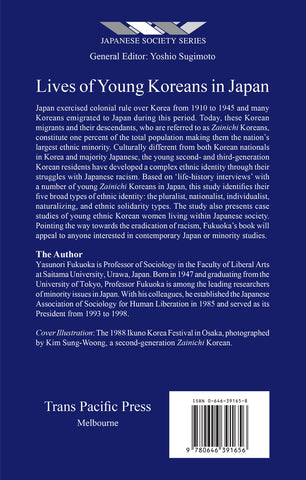Shop by Areas »
Shop by Category »
Additional information:
26306/04/2000 (Paperback)
12/04/2006 (Hardcover)
01/07/2020 (eBook)
5.75 x 8.75 (Hardcover)
5.25 x 8.25 (Paperback)
9781876843533
Nationalism and Gender
Many In Stock
This is written by a sociologist and Japan's "most famous feminist", Chizuko Ueno. A discursive battle over how Japan's history should be remembered constitutes the most recent, and perhaps the most explosive, round in a struggle over the legitimacy of different "narrator's" understandings of the past and its focus on the "comfort women" issue. Feminist theorist Chizuko Ueno confronts head on, in her usual lucid and hard-hitting style, the various actors in the debate. She skillfully cuts through the argument of the neo-nationalist "historical revisionists" who have attempted to deny or minimize the reality of the former "comfort women". Ueno's equally biting treatment of her natural allies - left-wing historians and feminist supporters of the "comfort women" - has also made the book highly controversial.
About Editors and Authors
UENO Chizuko is a leading Japanese feminist scholar and Professor Emeritus at the University of Tokyo. Her areas of specialization include gender theory, women’s studies and family sociology. After graduating from the Graduate School of Kyoto University, she served as Associate Professor at Heian Jogakuin Junior College, Visiting Researcher at the University of Chicago and Associate Professor at Kyoto Seika University. Her overseas appointments include Visiting Professor at the University of Bonn and at the University of Mexico. She became Associate Professor at the Faculty of Letters, University of Tokyo, in 1993, and then Professor in the Graduate School of Humanities and Social Sciences, University of Tokyo, in 1995. In recent years, she has been involved in research on aged care.
Table of contents
Contents
Translator’s Introduction
Author’s Introduction to the English Edition
Part I – Engendering the Nation
Methodological Issues
Paradigm Change in Post-War History
Paradigm Change in Women’s History
The Nationalism of Women and Wartime Mobilisation
The Feminist Response
The Feminist Version of “Conquering the Modern”
Female Socialist or Socialist Feminist? The Case of Yamakawa Kikue
The War Responsibility of Ordinary Women
The Dilemma of the Nation-State’s Gender Strategy
Show More >
Contents
Translator’s Introduction
Author’s Introduction to the English Edition
Part I – Engendering the Nation
Methodological Issues
Paradigm Change in Post-War History
Paradigm Change in Women’s History
The Nationalism of Women and Wartime Mobilisation
The Feminist Response
The Feminist Version of “Conquering the Modern”
Female Socialist or Socialist Feminist? The Case of Yamakawa Kikue
The War Responsibility of Ordinary Women
The Dilemma of the Nation-State’s Gender Strategy
The Paradox of this Gender Strategy
Women and the Issue of Conversion
Ideas Capable of Transcending the State
A Critique of the Reflexive School of Women’s History
Going Beyond the “Nationalism of Women” Paradigm
Part II – The Military Comfort Women Issue
A Triple Crime
The Patriarchal Paradigm of National Shame
The “Purity” of Korean Women
The Military Rape Paradigm
The Prostitution Paradigm
The Sexual Violence Paradigm
The National Discourse
The Grey Zone of Collaboration with Japan
A Uniquely Japanese or Universal Phenomenon?
Gender, Class and the Nation
“Truth” Amidst Multiple Histories
Part III – The Politics of Memory
The Japanese Version of Historical Revisionism
The Challenge to Gender History
The Positivist Myth of Objective and Neutral History
Historicization versus an Ahistorical Approach
Oral History and Testimony
Narrating History
Reflexive Women’s History
Going Beyond the Nation-State
Can Feminism Transcend Nationalism?
Part IV – Hiroshima from a Feminist Perspective: Between War Crimes and the Crime of War
Feminism, Peace Studies and Military Studies
Hiroshima as a Symbol
Hiroshima as seen from American Perspective
The Hauge International Court of Justice and the De-Criminalization of Nuclear Weapons
The Split in the Peace Movement
The De-Criminalization of State Violence
Two Lawless Zones
Who is a Citizen?
Public Violence and Gender
Women’s Participation in the Military
The Nationalism of Women
Between War Crimes and the Crimes of War
Epilogue
Chronology of Related Events
Notes
References
Index
Related Books
-
Women and Soldiers$34.99After World War II, for a variety of reasons, s...After World War II, for a variety of reasons, some women in Japan had intimate relations with occupying US soldiers. These women were called ‘panpan’, a derogatory label, and to this day have been ...
-
Women on the Right$37.95Right-wing social movements have been increasin...Right-wing social movements have been increasingly active in Japan since around 2000. Female members of right-wing political parties and other women activists on the right, including "internet righ...
-
Gender History in China$69.95How have femininity and masculinity been define...How have femininity and masculinity been defined and understood in China from prehistoric times to the present day? Gender History in China presents for the first time in English the work of leadi...
-
Gender Gymnastics$34.95The artifice of gender performance - sometimes ...The artifice of gender performance - sometimes playful, mostly conscientious - has enthralled and entertained audiences of Japan's all-female Takarazuka Revue for more than 90 years. The dashing ma...
-
"LGBT" Politics$32.09This is the comparative study of the politics s...This is the comparative study of the politics surrounding gender and sexual minorities in Asia, which sheds light on the diverse indigenous identities and sexualities of Asia, examining cases in In...
-
Widows of Japan$34.95This book presents a wide-ranging study of wido...This book presents a wide-ranging study of widows in Japan, filtered through the dramatic and complex intersection of women with death. These experiences are portrayed as intensely personal and yet...
-
Gender and Career in Japan$34.95In Japanese society, gender has long been a maj...In Japanese society, gender has long been a major determinant of individuals' work-career and life trajectory. Due to the complexity of this social phenomenon, Gender and Career in Japan probes the...
-
Gender and Modernity$34.95Drawing on a wealth of ethnographic fieldwork, ...Drawing on a wealth of ethnographic fieldwork, this anthology examines the complexities of identity formation and self-positioning in post-colonial contexts, ranging from the impact of Christian mi...
-
Coming Out in Japan$29.00Traditionally the Japanese have shunned those n...Traditionally the Japanese have shunned those not fitting the majority heterosexual mould. Those with a homosexual orientation have always endured an uncomfortable existence in a culture which cond...
-
Japan's Ultra-Right$39.95This book is a comprehensive account of the nat...This book is a comprehensive account of the nativist movement in Japan today. Naoto Higuchi uses the life histories of activists to establish that the basis of their support for the movement is the...
-
Japan's Underclass$34.95Condemned by economic forces and the prejudices...Condemned by economic forces and the prejudices of others to remain forever in the underclass, the homeless and day laborers in present-day affluent Japan struggle to survive in its cities. Japan's...
-
An Intimate Journey$79.95This work offers a comprehensive description of...This work offers a comprehensive description of the lives of the Sama-Bajau people based on ongoing ethnographic research conducted by the author in Davao City, the Philippines, for over two decade...
-
Living on the Streets in Japan$35.95Homelessness has been recognized as a serious p...Homelessness has been recognized as a serious problem in Japan since the 1990s, but the dominant model of a "homeless person" has been that of an unemployed male laborer - a model that has largely ...
-
Learning English in Japan$84.95Multiple discourses circulate Japanese society ...Multiple discourses circulate Japanese society surrounding the relationship between Japanese people and the English language. For example, 'Japanese people are the worst English speakers in Asia,' ...
-
The Modern Family in Japan$34.95This award-winning book brings together Chizuko...This award-winning book brings together Chizuko Ueno's groundbreaking essays on the rise and fall of the modern family in Japan. Combining historical, sociological, anthropological, and journalisti...
-
Gender Gymnastics$34.95The artifice of gender performance - sometimes ...The artifice of gender performance - sometimes playful, mostly conscientious - has enthralled and entertained audiences of Japan's all-female Takarazuka Revue for more than 90 years. The dashing ma...
-
Youth Deviance in Japan$34.95Based on fieldwork spanning two decades, this b...Based on fieldwork spanning two decades, this book presents a longitudinal study of deviance and crime among youths in Kanagawa-ken, with a focus upon two groups of young people - a working class g...
-
Foreign Migrants in Contemporary Japan$29.95This book overviews the present situation of fo...This book overviews the present situation of foreign migrants in Japan, based on the latest and most comprehensive available data, and presents necessary policy recommendations. Special attention i...
-
Amorphous Dissent$41.95Since the Fukushima nuclear accident in the wak...Since the Fukushima nuclear accident in the wake of the Great East Japan Earthquake of 11 March 2011, Japan has seen a significant revival in its social activism. Large-scale social movements spran...
-
The State Construction of 'Japaneseness'$42.95For more than 140 years, Japan's koseki registr...For more than 140 years, Japan's koseki registration system has functioned as the official means by which an individual qualifies as "Japanese". Information concerning each family is entered into o...
-
Grassroots Globalization$47.95Rapidly advancing globalization impacts indigen...Rapidly advancing globalization impacts indigenous people worldwide. In this long-term study of a remote village famous for its World Heritage-listed rice terraces, where the people actively confro...
-
Others$45.95As the sequel to Groups (2013) and Institutions...As the sequel to Groups (2013) and Institutions (2017), Others is the third work produced by a collaborative research project involving primatologists and anthropologists on the evolutionary histor...
-
Fighting Prejudice in Japan$44.95This collection of twelve life stories delves i...This collection of twelve life stories delves into the experiences of families of Hansen's Disease (Leprosy) patients who tell their own stories in their own words. In detailed interviews spanning ...
-
Human Survivability Studies$89.95The challenges we face today are growing conspi...The challenges we face today are growing conspicuously broad in scale and complex in nature. Human Survivability Studies is a new transdisciplinary field born from the growing awareness of the urge...
-
An Anthropology of Things$42.95The aim of this book is to highlight the import...The aim of this book is to highlight the important roles that things play in our everyday lives by examining how things and humans interact. Based on ethnographical data from Asia, Africa, and Ocea...
-
Creating Subaltern Counterpublics$89.95This is a study of a political and social movem...This is a study of a political and social movement instigated by older Korean women in Japan, beginning in the 1990s. Koreans in Japan have occupied an unique position among ethnic minority groups....
-
Narratives on San Ethnicity$44.95The !Xun are a San people living in the Kalahar...The !Xun are a San people living in the Kalahari Desert in Namibia, Botswana, and in Angola. In this book, the cultural and ecological foundations of ethnicity of the !Xun provide a case study for ...
-
International Migrants in Japan$84.95Japan faces multiple challenges in an era of po...Japan faces multiple challenges in an era of population decline. Problems such as aging and a decreasing working-age population are expected to increase in severity, so tackling these challenges an...
-
Arctic Pastoralist Sakha$84.95The Sakha - traditional cattle and horse pastor...The Sakha - traditional cattle and horse pastoralists and one of the largest ethnic minorities in Siberia - hold a unique position in human adaptation. This book focuses on the cultural history, pr...
-
The Gidra$89.95For 25 years, author Toshio Kawabe and his coll...For 25 years, author Toshio Kawabe and his colleagues periodically lived and worked among the Gidra people of the tropical wet lowland of Papua New Guinea. In this book, Kawabe reports on a continu...
-
The Bushmen$99.95The Bushmen archives nearly 50 years of researc...The Bushmen archives nearly 50 years of research with some of Southern Africa's remotest groups. Author Jiro Tanaka's deep connection with his subject matter is evident through his insightful and o...
-
Migrant Workers in Contemporary Japan$34.95With a focus on Brazilian migrant workers in Ja...With a focus on Brazilian migrant workers in Japan, this study produces a comprehensive picture of the forces driving transnational labor migration, both in the countries of origin of foreign worke...
-
Japanese Perceptions of Foreigners$79.95In this study, eight young Japanese sociologist...In this study, eight young Japanese sociologists analyze quantitative social survey data to understand the new phase of Japanese nationalism. They asked ordinary Japanese people to share their view...
-
Stratification in Cultural Contexts$34.95Stratification in Cultural Contexts is a collec...Stratification in Cultural Contexts is a collection drawn from research results of the East Asian Division of the Center for the Study of Social Stratification and Inequality at Tohoku University. ...
-
Social Exclusion$34.95Just within a few decades, the global dream of ...Just within a few decades, the global dream of building a 'middle class society' has vanished almost everywhere, giving way to an emerging global nightmare: 'social exclusion.' France and Japan hav...
-
Class Structure in Contemporary Japan$29.95The author, Hashimoto, has been a solitary voic...The author, Hashimoto, has been a solitary voice in the social stratification analysis of Japanese society for the last two decades presenting its class structure in Marxian terms. His models and f...
-
Minorities and Diversity$34.95Diversity' is a crucial concept describing the ...Diversity' is a crucial concept describing the recent shift in minority studies away from its focus on social stratification and inequality. In recent times, new theories and concepts that suggest ...
-
Widows of Japan$34.95This book presents a wide-ranging study of wido...This book presents a wide-ranging study of widows in Japan, filtered through the dramatic and complex intersection of women with death. These experiences are portrayed as intensely personal and yet...
-
Poverty and Social Welfare in Japan$34.95Due to the chorus of admiration that recognizes...Due to the chorus of admiration that recognizes Japan having become the world's second largest economy in the latter half of the 20th century, the awareness of poverty in Japan has been concealed. ...
-
Status and Stratification$34.95Exploring the myriad ways that status and strat...Exploring the myriad ways that status and stratification manifest in different cultural contexts, this collection presents in-depth studies of a variety of cultural forms in Asia. The first of the ...
-
A Quest for Alternative Sociology$39.95In 2003, a number of sociology and social work ...In 2003, a number of sociology and social work faculty members at Kwansei Gakuin University (Japan) commenced an ambitious program in pursuit of social research that might serve to enhance human we...
-
Social Welfare in Japan$79.95Social Welfare in Japan is an important study o...Social Welfare in Japan is an important study of the historical development and fundamental characteristics of social welfare in Japan and beyond. Reviewing arguments about the welfare state and th...
-
Gender and Career in Japan$34.95In Japanese society, gender has long been a maj...In Japanese society, gender has long been a major determinant of individuals' work-career and life trajectory. Due to the complexity of this social phenomenon, Gender and Career in Japan probes the...
-
Deciphering Stratification and Inequality$34.95Employing a diverse range of quantitative and q...Employing a diverse range of quantitative and qualitative methodologies, this book offers a complex examination of the changing nature of social stratification and its subsequent impact on inequali...
-
Frontiers of Social Research$34.95This title is the second volume of the Advanced...This title is the second volume of the Advanced Social Research series which Trans Pacific Press publishes in collaboration with Kwansei Gakuin University in Japan. In this collection, thirteen ess...
-
Intentional Social Change$34.95Why do some efforts to implement social change ...Why do some efforts to implement social change succeed while others fail? Yoshimichi Sato observes in this book that existing theories focus on social action at either the micro- or the macro-level...
-
Inequality amid Affluence$34.95Highlighting the limits of existing approaches ...Highlighting the limits of existing approaches in the study of stratification in contemporary Japanese society, Inequality Amid Affluence adopts a new framework that distinguishes between the conce...
-
A Sociology of Happiness$34.95Written by the sociologists at Kwansei Gakuin U...Written by the sociologists at Kwansei Gakuin University who are engaged in 'Social Research for the Enhancement of Human Well-being', this study explores issues of happiness from a wide variety of...
-
Native Anthropology$34.95A major task in contemporary anthropology is th...A major task in contemporary anthropology is the creation of dialogic space among all the people concerned with the culture studied, without privileging one kind of discourse over another. Seen glo...
-
Gender and Modernity$34.95Drawing on a wealth of ethnographic fieldwork, ...Drawing on a wealth of ethnographic fieldwork, this anthology examines the complexities of identity formation and self-positioning in post-colonial contexts, ranging from the impact of Christian mi...
-
Farewell to Nippon$29.00This study presents an ethnographic account of ...This study presents an ethnographic account of a fresh breed of emigrants who have left Japan to settle in Australia in pursuit of a better quality of life. They differ from "economic migrants" who...
-
Globalization and Social Change in Contemporary Japan$26.00Analysis of Japanese society has been hampered ...Analysis of Japanese society has been hampered by its use of static models: by its assumption that there is a unique and unchanging structure explainable by reference to a handful of native terms. ...
-
Lives of Young Koreans in Japan$49.95Japan exercised colonial rule over Korea from 1...Japan exercised colonial rule over Korea from 1910 to 1945 and many Koreans emigrated to Japan during this period. Today, these Korean migrants and their descendants, who are referred to as Zainich...
